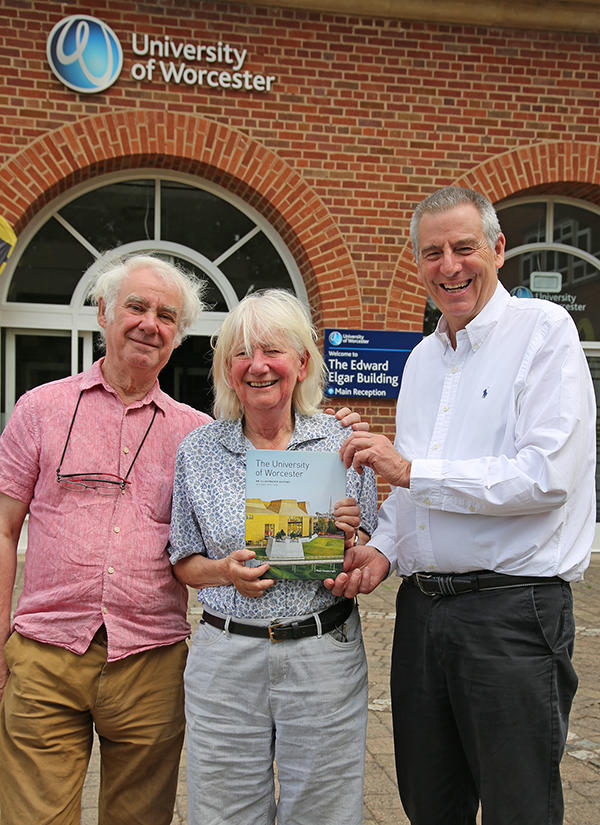Leading Poverty Expert Praises Work to Tackle Social Mobility and Inclusion
Wednesday, 13 August 2025
One of the UK’s leading experts on poverty has praised efforts by the University of Worcester to tackle social mobility and inclusion.
 Joanna Mack (centre) with husband Harold Frayman (left) and the University's Vice Chancellor, Professor David Green CBE (right)
Joanna Mack (centre) with husband Harold Frayman (left) and the University's Vice Chancellor, Professor David Green CBE (right)
Joanna Mack is the pioneering author behind the groundbreaking ‘Breadline Britain’ series and has spent more than four decades transforming public understanding of inequality through award-winning documentaries, research and publications.
During a recent visit to the University, she commended its work to break down barriers to opportunity and to raise aspirations from the earliest age. She described The Hive, Europe’s first university and public library, which the University developed with Worcestershire County Council, as “potentially life changing for lots of children”, commenting on the value of libraries in improving life chances.
“If you can find a way to improve people’s access to educational opportunities, you can transform people’s lives,” she said.
She also praised the University’s work to ensure all its facilities are accessible for those with a physical disability.
“The University is changing attitudes and thinking towards inclusion,” Joanna said: “Here, there is no debate about whether facilities will be accessible for people, it is a given, and that’s what we need to see more of.”
Joanna produced and directed the first of the Breadline Britain series in 1983 and was the series editor for the second series Breadline Britain in the 1990s. She subsequently published a book of the same title in 2015 after setting up the website www.poverty.ac.uk, which has become an important source of information on poverty and social exclusion in the UK and is now extensively used by researchers, educators, students and the general public.
Talking about the current cost of living crisis, Joanna said the Government needed to do more to help lift people out of poverty, including investing the benefits system, education and workers’ rights.
“Some of the things we are seeing from Government, like the Best Start Family Hubs are a step in the right direction, but they need to be thinking more imaginatively,” she said. “There are lots of good examples of work to tackle poverty at local levels, with organisations working together, such as the Preston Model, where they have used collective buying power to invest in local businesses, which can be built on further. And universities have a really big role to play in this.
“Universities are among the largest employers in local regions, and in working together, just as Worcester has done through the creation of The Hive, can make a huge difference to people’s lives for the better.”
Her latest book, Impoverished: Fixing Britain and its poverty problem, will be published by Policy Press in March 2026.